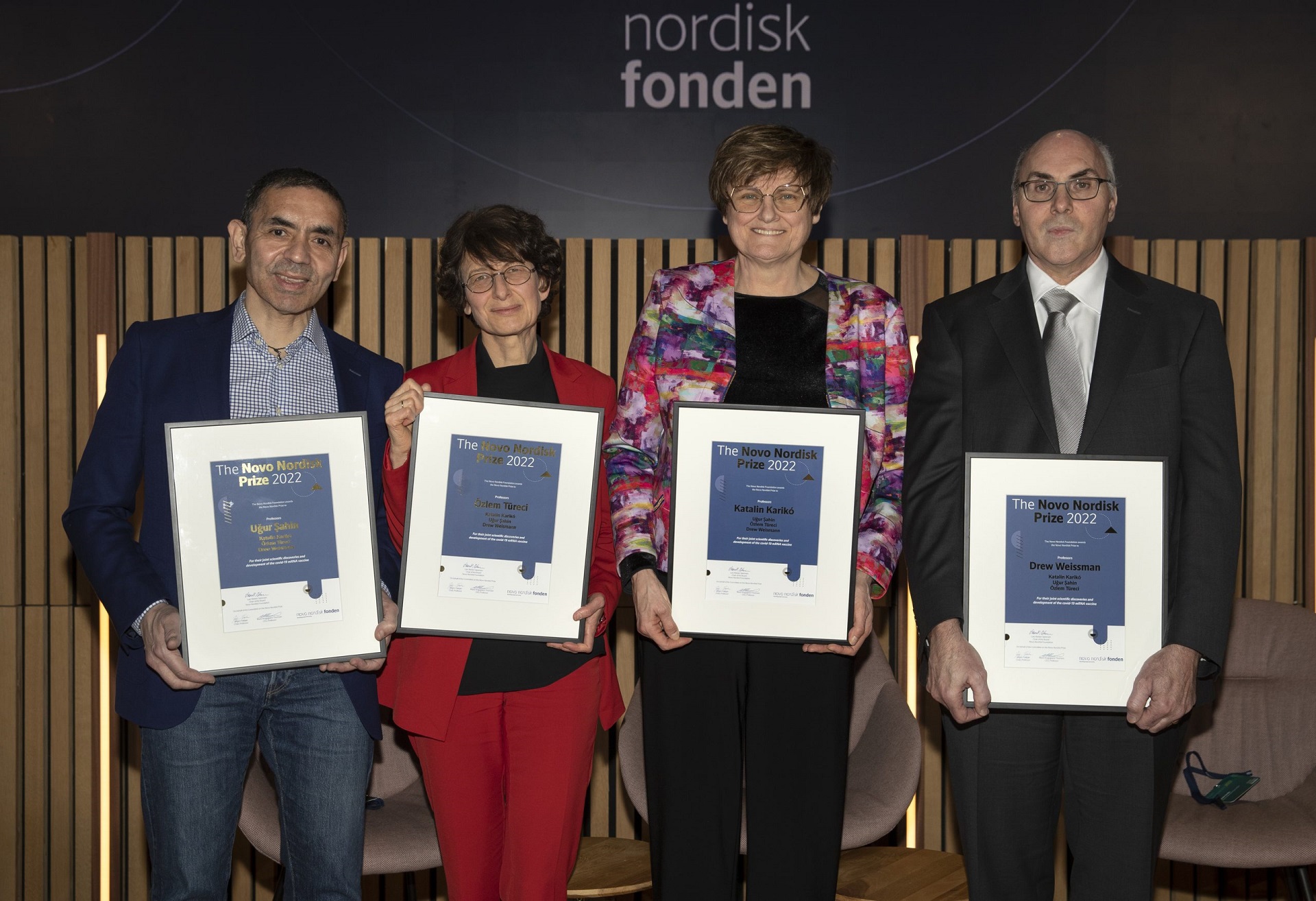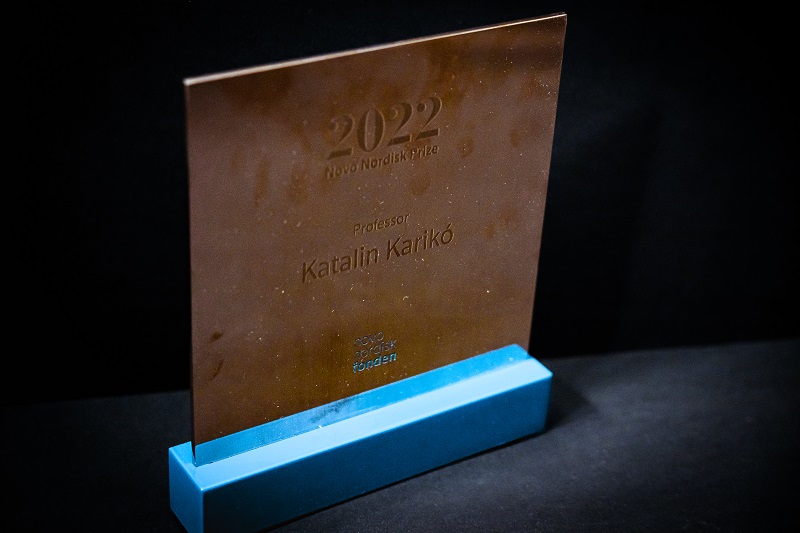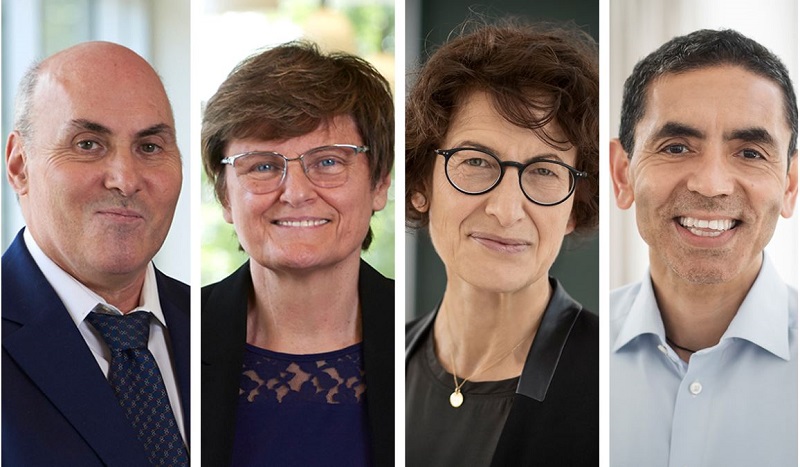
Organized in collaboration between the University of Szeged and the 2022 Novo Nordisk Prize laureates Katalin Karikó, Drew Weissman, Ugur Şahin, and Özlem Türeci, the mRNA Conference in Szeged is a highly prominent event for Hungary’s scientific community. With the Novo Nordisk Foundation providing primary funding for the summit, this article highlights the Danish foundation’s significant contributions on a global scale.
A century of life-saving innovation
Spanning over a century, Novo Nordisk’s origins trace back to two small Danish companies, Nordisk Insulinlaboratorium and Novo Terapeutisk Laboratorium. In 1921, upon learning of the discovery of insulin, Danish Nobel laureate August Krogh, encouraged by his wife Marie, traveled to Canada to seek permission from researchers to produce this life-saving drug in Denmark. After Krogh’s return, his wife persuaded scientist Hans Christian Hagedorn to join her husband and diabetes specialist, Danish physician August Kongsted from Løvens Kemiske Fabrik. By March 1923, insulin treatments became available to the first patients –marking the beginning of a century of innovation in protein-based therapies for severe chronic diseases.

Without any treatment or proper care, individuals with chronic diabetes face life-threatening complications, including the risk of amputation, loss of vision, and, in severe cases, fatal outcomes. On a societal level, diabetes often impacts vulnerable communities and low-income countries the most, with the cost of medical care imposing a huge burden on patients, their families, and society as a whole.
“Our long-term ambition is to provide access to affordable diabetes care for vulnerable patients in every country, especially children living with type 1 diabetes, who face certain death in some parts of the world without care and medicine. We also invest in chronic disease prevention. Our ambition is to prevent more than 100 million people from getting type 2 diabetes by 2045,” reads the mission statement on the company website.
Novo Nordisk’s primary focus is healing and enhancing quality of life. In line with this pursuit, one of the company’s main activities is the development and production of innovative injection pens. These state-of-the-art pharmaceutical devices combine patient insights with engineering excellence to ensure easy and efficient drug administration.
The multinational pharmaceutical company has production sites in 9 countries (Algeria, Brazil, China, Denmark, France, Iran, Japan, Russia, and the United States) and operates 10 research and development centers in five countries (China, Denmark, India, UK, and the United States). It employs more than 69,000 people in 80 offices around the world, including Hungary, marketing its products in 170 countries.
The Novo Nordisk Prize
On its website, the Novo Nordisk Foundation states, “The Novo Nordisk Prize recognizes an active scientist who has provided outstanding international contributions to advance medical science for the benefit of people’s lives. The Prize is intended to award and further support biomedical research in Europe.”
The Prize totals DKK 5 million (approximately EUR 660,000), comprising a DKK 4.5 million (around EUR 594,000) research grant and a personal award of DKK 0.5 million (approximately EUR 66,000). Additionally, the Foundation provides an extra DKK 0.5 million to support an international symposium in the recipient’s area(s) of research.
The Foundation encourages nominations from individual researchers and research institutions, including both academic and industrial organizations, as well as research funding agencies. To be considered by the Novo Nordisk Prize Committee, nominations must be submitted electronically. The nomination and review processes are conducted with strict confidentiality. Eligibility criteria require that nominees demonstrate scientific excellence through a significant discovery or breakthrough in understanding human health and disease, or in the prevention, diagnosis, and/or treatment of diseases. Nominees must hold a current position and maintain an active research program at a public, non-profit research institution or company based in a European country. They should also be inspirational leaders and role models for young scientists. Nominations are open to individuals of any nationality, and there is no limit on the number of nominations a nominator may submit.
The prize, initially set at DKK 50,000, was first awarded on February 16, 1963. Over time, the prize amount gradually increased. Known as the Novo Prize from its inception until 1989, it was then renamed the Novo Nordisk Prize. Up until 2020, the Prize recognized contributions made within Denmark. However, in 2020, the decision was made to expand its geographical scope, and since 2021, the prize has been awarded for contributions across Europe.

Photo by István Sahin-Tóth
Szeged: The host city
As previously reported, the international mRNA conference supported by the Novo Nordisk Foundation will be held at the University of Szeged on November 7 and 8, 2024. This venue was chosen because, in 2022, the Foundation’s prestigious prize was awarded to University of Szeged professor Katalin Karikó, along with her research partners Drew Weissman, Özlem Türeci, and Uğur Şahin. Karikó and Weissman were subsequently honored with the Nobel Prize in 2023.

“The Novo Nordisk Foundation, which had primarily supported researchers in Nordic countries – Norway, Sweden, Finland, and Denmark – for most of its 100-year history, began expanding its reach to the rest of the world a few years ago,” said Katalin Karikó at a press conference at the Rector’s Office of the University of Szeged on September 12. Professor Karikó also explained how Szeged was chosen as the venue for the conference: “After us, in 2023, the prize was awarded to British researchers, with the associated conference held in London. This led the Novo Nordisk Foundation to realize that it would be better to hold such events not in Denmark, but in the country where the awardee’s institution operates,” explained the renowned researcher at the press event for announcing the conference.
The University of Szeged was also granted a prize of 1,125,000 Danish Kroner (approximately HUF 60 million), which will be used to establish an animal research facility, fund further research, and cover the costs of hosting the mRNA conference in Szeged.
Original Hungarian text by Ferenc Lévai
Photos by István Sahin-Tóth István and Novo Nordisk
Previous articles on the mRNA Conference in Szeged:
A real eye-opener: Coursera’s free course on mRNA
New advances in mRNA research spark hope – one year after Katalin Karikó’s Nobel Prize win
University of Szeged to host two-day conference on the ‘Swiss Army knife’ of medical science

